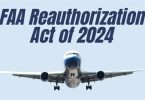The International Air Transport Association (IATA) reemphasized that every drop of fuel avoided counts in the aviation industry’s quest to achieve net zero carbon emissions by 2050 with the latest result from the IATA Fuel Efficiency Gap Analysis (FEGA).
LOT Polish Airlines (LOT) is one of the airlines to undertake the FEGA, which identified the potential to shave its annual fuel consumption by several percent. That equates to an annual reduction by tens of thousands of tonnes of carbon from LOT’s operations.
“Every drop counts. Since its inception in 2005, FEGA has helped airlines identify cumulative savings of 15.2 million tonnes of carbon by cutting fuel consumption by 4.76 million tonnes. LOT is the latest example of an airline exploring all opportunities to achieve every incremental efficiency possible in fuel consumption. That’s good for the environment and for the bottom line,” said Marie Owens Thomsen, IATA’s Senior Vice President Sustainability and Chief Economist.
On average, FEGA has identified fuel savings of 4.4% per airline audited. If fully realized across all audited airlines, these savings, which stem primarily from flight operations and dispatch, equate to removing 3.4 million fuel-powered cars from the road.
The FEGA team analyzed LOT’s operations against industry benchmarks in flight dispatch, ground operations, and flight operations to identify fuel savings potential. The most significant ones were identified in flight planning, emission reduction through implementation of aviation procedures and refueling operations.
“FEGA revealed specific areas where fuel efficiency improvements can be made. The next step is implementation to actually achieve the benefits of improved environmental performance and lower operating costs”, said Dorota Dmuchowska, Chief Operating Officer at LOT Polish Airlines.
“FEGA is a key IATA offering. The audit not only benefits the airline undergoing the process thanks to a reduced fuel use, it also helps the whole industry improve its environmental performance. Those benefits will grow as FEGA continuously becomes more effective with accumulated experience and growing capabilities using anonymized and aggregated airline data. Most importantly, realizing the FEGA identified savings will be an important support as airlines transition to SAF in pursuit of net zero emissions by 2050,” said Frederic Leger, IATA’s Senior Vice President for Commercial Products and Services.
Fly Net Zero is the commitment of airlines to achieve net zero carbon by 2050.
At the 77th IATA Annual General Meeting in Boston, USA, on 4 October 2021, a resolution was passed by IATA member airlines committing them to achieving net-zero carbon emissions from their operations by 2050. This pledge brings air transport in line with the objectives of the Paris Agreement to limit global warming to well below 2°C.
To succeed, it will require the coordinated efforts of the entire industry (airlines, airports, air navigation service providers, manufacturers) and significant government support.
Current projections estimate that demand for air passenger journeys in 2050 could exceed 10 billion. The expected 2021-2050 carbon emissions on a ‘business as usual’ trajectory is approx 21.2 gigatons of CO2.
(eTN): IATA: Global Aviation Quest for Net Zero | re-post license | post content























